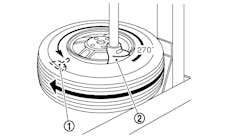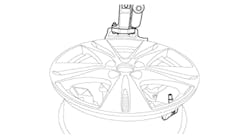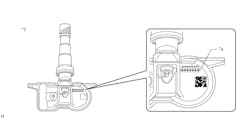The Tire Industry Association (TIA) is urging the Federal Trade Commission (FTC) to take action against Mazda North America Operations for violating the Magnuson Moss Warranty Act (MMWA). The act prohibits the conditioning of warranties based on the use of a non-original equipment part.
TIA issued the letter jointly with the Automotive Aftermarket Industry Association (AAIA), the Automotive Oil Change Association (AOCA) and the Service Station Dealers of America and Allied Trades (SSDA-AT). It was in response to a press release issued by Mazda that the associations say is misleading to consumers regarding the use of aftermarket parts.
“We are extremely concerned that the unsupportable, harmful generalizations made in this release relative to the quality of aftermarket products are already wrongfully pushing consumers to give up their MMWA guaranteed right to choose non-Mazda brand parts and service,” says Roy Littlefield, executive vice president of TIA. “We strongly request that the FTC call on Mazda either to provide substantiation of their claim that aftermarket parts are ‘generally made to a lower standard,’ or withdraw that claim and issue a public correction in the same venues and manner as the original release.”
The letter states that Mazda “recommends that all maintenance and collision repairs be performed using Genuine Mazda Parts in order to provide an optimum level of performance, safety and durability.” Mazda further states that it “does not recommend the use of aftermarket parts (or imitation parts) for any Mazda maintenance or collision repair….
“These aftermarket parts are generally made to a lower standard in order to cut costs and lack the testing required to determine their effectiveness in vehicle performance and safety (emphasis added).” TIA says none of the statements that were made by Mazda were accompanied by any form of evidence.
The joint letter further states that “every day car owners or their service professionals use non-Mazda parts in the repair of their vehicle without any problem. In fact, many of these parts may have been produced by the very same factory that supplied the original component to Mazda — only the label on the box is different.”


